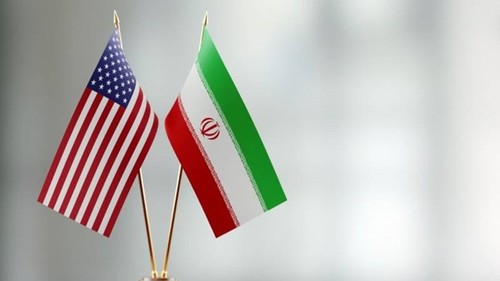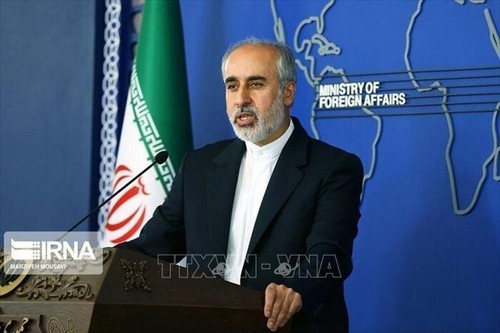 American and Iranian flags. Photo: AFP American and Iranian flags. Photo: AFP
|
Iran will release four prisoners in exchange for four persons being held by the United States. The prisoner swap agreement also includes the unfreezing of Iranian funds abroad, mainly in South Korea. More than 7 billion USD in foreign exchange reserves have been blocked by Seoul under US pressure. Four American nationals with dual nationalities have been held in Iran for years on various charges, including espionage. The Iranians have been jailed in the US primarily for bypassing sanctions.
Although Tehran considers the prisoner exchange to be separate from the nuclear deal and purely a humanitarian issue, the swap is a positive signal that could pave the way for reviving the deal known as the Joint Comprehensive Plan of Action (JCPOA).
Are talks inching toward the finish line?
The nuclear talks were revived in April 2021, but were suspended in March of this year because of a lack of progress in resolving political differences between Tehran and Washington. The latest round of talks was held in Vienna in early August after a five-month hiatus. On August 8, the EU released the final text of a nuclear accord draft on which Iran and the US then indirectly exchanged views. But there are some points on which the two have not yet agreed.
Tehran has repeatedly emphasized the importance of credibility assurance in order to revive the JCPOA. In an interview with US National Public Radio (NPR), published last month on Iran's Foreign Ministry website, Foreign Minister Hossein Amir-Abdollahian insisted that diplomacy is the solution to the deadlock, and said Iran is serious about reaching a robust and sustainable agreement.
Iranian Foreign Ministry spokesman Nasser Kanani told a press conference on October 3 that efforts are underway with the European coordinator and other mediators to reach an agreement. He said, “If the other side, particularly the US government, shows political will, it is possible that a deal will be concluded in a short period.”
 Iranian Foreign Ministry spokesman addresses a press conference in Tehran. Photo: IRNA/VNA Iranian Foreign Ministry spokesman addresses a press conference in Tehran. Photo: IRNA/VNA
|
Right time for JCPOA
After nearly 17 months of negotiations, analysts say the time is right to reinstate the 2015 nuclear deal, which would delay an Iranian bomb, reduce instability in the Middle East, and help the West deal with an energy crisis as winter approaches.
If the deal is revived, it would temporarily limit Tehran's nuclear capabilities and lift sanctions on Tehran, paving the way for the release of billions of dollars in frozen assets and oil and gas revenues. Iran could add about 1 million barrels of oil per day to the market, partially replacing Russia's oil supply to Europe and pushing down global energy prices.
But reviving the nuclear deal must entail strict verification of Iran’s compliance. Iran is seeking assurance that future US administrations will not walk away from the agreement again. The Biden administration has said it will honor its obligations but cannot guarantee what the next administration will do. Iran wants a guarantee incorporated into the text of the agreement to protect its economy should the deal fall apart again. Western negotiators have suggested a guarantee that foreign companies be allowed to continue operating in Iran for two and a half years without fear of sanctions if the deal breaks down.
Despite the encouraging signals, analysts say the new deal is already weaker than the 2015 version. But given the current situation, any deal that can be reached will increase mutual trust and create a basis for further agreements.